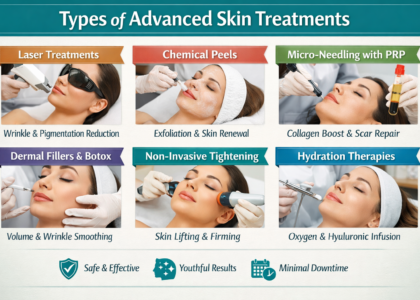Introduction: What is the Art & Science of Health Promotion Conference?
The Art & Science of Health Promotion Conference is one of the premier gatherings for healthcare professionals, public health experts, researchers, and educators focused on advancing health promotion initiatives worldwide. This conference brings together a diverse range of stakeholders from various sectors to discuss evidence-based strategies, creative methodologies, and cutting-edge research in the field of health promotion.
For over two decades, the conference has been instrumental in facilitating knowledge exchange and collaborative opportunities for the improvement of public health. It explores how scientific knowledge, creative design, and social determinants of health can converge to create a holistic approach to improving the well-being of individuals and communities.
The Art & Science of Health Promotion Conference: A Perfect Blend of Theory and Practice
The Art & Science of Health Promotion Conference highlights the intersection between scientific research and creative strategies in health promotion. Health promotion is both an art and a science, requiring not only rigorous scientific methodologies but also the creativity to design engaging, culturally competent programs that resonate with diverse populations.
The Art of Health Promotion: Creativity in Action
While science provides the foundation for understanding health-related issues, the art of health promotion lies in the ability to communicate these issues effectively and in a way that inspires action. This involves:
- Designing Engaging Campaigns: Health promotion campaigns must be designed with the audience in mind. Utilizing visual arts, storytelling, and multimedia content are key in delivering messages that resonate.
- Behavioral Change: The art of health promotion is understanding how to motivate individuals to make healthier choices. This includes using behavioral psychology and innovative interventions to foster lasting change.
- Cultural Competency: Artists and communicators must adapt their approaches to different cultural contexts, ensuring that health promotion initiatives are inclusive and sensitive to cultural values.
The Science of Health Promotion: Evidence-Based Strategies
The scientific aspect of health promotion involves research, data collection, and evidence-based strategies to ensure that health programs are effective and impactful. Scientific rigor is essential in evaluating the outcomes of health promotion initiatives and refining strategies for future success. Key scientific approaches discussed at the Art & Science of Health Promotion Conference include:
- Epidemiology and Public Health Research: The conference emphasizes the importance of epidemiological data to identify health trends, risks, and disparities that need to be addressed.
- Policy and Systems Change: Health promotion is not just about individual behavior; it is also about changing systems and policies to improve health outcomes for entire populations.
- Interdisciplinary Collaboration: The science of health promotion benefits from collaboration across disciplines, including medicine, education, social work, and communication studies. This holistic approach ensures that health promotion strategies are both scientifically sound and widely applicable.
Why Attend the Art & Science of Health Promotion Conference?
Attending the Art & Science of Health Promotion Conference offers an invaluable opportunity for professionals to:
- Stay Updated on the Latest Research: With continuous advancements in health research, this conference provides attendees with the most recent evidence on health promotion practices.
- Learn from Experts: The conference features a wide range of experts in the field, offering attendees the chance to gain insights from thought leaders, practitioners, and researchers.
- Network with Peers: Participants have the opportunity to meet and collaborate with like-minded professionals and organizations committed to promoting public health.
- Enhance Skills and Knowledge: Workshops, presentations, and breakout sessions offer hands-on learning experiences and in-depth discussions about the strategies and tools necessary for effective health promotion.
Focus Areas of the Art & Science of Health Promotion Conference
The Art & Science of Health Promotion Conference focuses on several key areas within health promotion:
- Chronic Disease Prevention: Strategies and best practices for preventing common chronic diseases, such as heart disease, diabetes, and obesity.
- Mental Health: Innovative approaches to addressing mental health challenges and promoting emotional well-being.
- Environmental Health: Exploring how the environment influences health and how to implement policies that create healthier living spaces.
- Social Determinants of Health: Understanding how factors like income, education, and social support networks impact health outcomes.
Conclusion: The Future of Health Promotion
The Art & Science of Health Promotion Conference provides a unique platform to discuss the challenges and opportunities within the field of health promotion. By combining the creativity of the arts with the rigor of science, the conference plays a crucial role in advancing public health globally. With its multidisciplinary focus, the conference helps shape the future of health promotion strategies, ensuring that all individuals have access to healthier, more fulfilling lives.
FAQ: Frequently Asked Questions About the Art & Science of Health Promotion Conference
1. What is the Art & Science of Health Promotion Conference?
The Art & Science of Health Promotion Conference is an annual event that gathers healthcare professionals, researchers, and educators to discuss the latest trends, research, and strategies in health promotion. It combines both scientific rigor and creative approaches to improve public health outcomes.
2. How can I register for the Art & Science of Health Promotion Conference?
Registration for the Art & Science of Health Promotion Conference can be done through the official conference website. Be sure to check for early bird registration discounts and any deadlines for submission of abstracts or proposals.
3. Who should attend the Art & Science of Health Promotion Conference?
This conference is ideal for public health professionals, healthcare providers, educators, policymakers, researchers, and anyone interested in learning about innovative and evidence-based strategies in health promotion.
4. What topics are covered at the Art & Science of Health Promotion Conference?
The conference covers a wide range of topics, including chronic disease prevention, mental health, environmental health, social determinants of health, behavioral change strategies, and much more. It highlights the integration of scientific research with creative, artistic approaches to health promotion.
5. Can I submit a proposal or present at the Art & Science of Health Promotion Conference?
Yes, the Art & Science of Health Promotion Conference often accepts proposals for presentations, workshops, and poster sessions. If you have innovative research or programs in the field of health promotion, submitting a proposal can be a great way to share your work with a broader audience.
6. What makes the Art & Science of Health Promotion Conference unique?
The uniqueness of the Art & Science of Health Promotion Conference lies in its focus on both the science and the creative aspects of health promotion. The conference encourages interdisciplinary collaboration, blending evidence-based practices with innovative approaches to address the complex health challenges of our time.
By emphasizing both the art and science of health promotion, this conference creates an environment for attendees to learn, grow, and contribute to the global efforts of improving public health.
By integrating both artistic and scientific perspectives, the Art & Science of Health Promotion Conference continues to serve as a cornerstone for advancing health in creative and evidence-backed ways. Make sure to stay updated on the next event and take part in this enriching professional experience.




